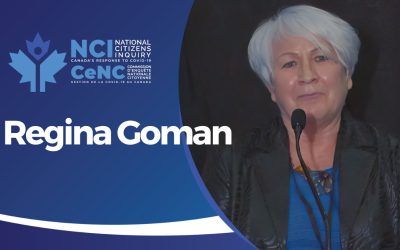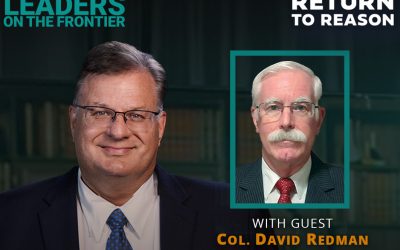AS a boy-wonder candidate to lead the federal Liberals, Scott Brison works hard at striking a humble pose when facing a group of journalists. He cranks up his gentle Nova Scotia accent, tries to speak as softly as he can, and smiles as much as possible.
But don’t underestimate the Liberal MP and former Progressive Conservative leadership candidate, who loves to mention how he is from a poor rural riding in Nova Scotia and therefore understands rural Canada and other areas outside Canada’s large urban centres. Brison is clearly intelligent and well-versed, and can crank out statistics galore to back up his points. For example, he can tell you that of the world’s energy-producing countries that consume less than they produce, only two are stable democracies: Canada and Norway. Who knew.
And Brison loves to mention the various economic think-tanks he admires, including Manitoba’s Frontier Policy Centre.
Yes, the man does his homework and is prepared to engage in polite but firm debate with journalists probing for his policy weak spots. He talks a lot about emphasizing renewable energy, and when reminded that energy is a provincial jurisdiction, he remarks that clean energy is in the national interest and therefore requires a national policy and approach. He lists the Bay of Fundy and its powerful tides as an example of a clean-energy source to be better accessed.
But Brison, a former investment banker, has glaring weak spots both in his leadership bid and in his fairly new political loyalties. For one thing, the man doesn’t sound like a real federal Liberal, at least not in the traditional philosophical sense. To be blunt, Brison is right-wing. “…I want to out-innovate Conservatives economically,” he told the National Post’s editorial board recently. He voted against the Kyoto Protocol while a Progressive Conservative MP. He wants to reduce corporate taxes, offer people economic incentives to get off welfare, and end income tax to young people at a certain wage bracket. He opposes direct government grants to business. Brison’s focus is on economic growth and encouraging Canadians, even poor ones, to pull themselves up by their own bootstraps. These are policies traditionally espoused by right-wing politicians.
Brison also supports Canada’s Afghanistan mission and voted in favour last week of extending the mission another two years.
Brison is not the kind of person the main power structure in the Liberal party establishment is seeking. They want the party to turn more to the centre-left and bring back voters lost in last January’s election to the NDP. Mainstream Liberals want more government intervention in the economy, more big-government solutions to dealing with poverty. Not Brison. His is a philosophy of the individual being given equality of opportunity in order to succeed economically. He doesn’t talk about equality of results, as do the more numerous left-leaning Liberals.
To be blunt, Brison never should have left the new Conservative party put together by Stephen Harper and Peter MacKay from the old PC and Alliance parties. He would be politically better off had he stayed. Brison left the party in a huff after having originally backed the merger on the right. He talked about not feeling welcome in the caucus and being uncomfortable with the social conservatism found among some of the party members. Brison is openly gay, and the party’s promises to hold a vote on same-sex marriage understandably made him uncomfortable. But this was actually only a short-term problem for him. The Harper government can never repeal gay marriage, even if it tries. Many of Harper’s own MPs would vote against it, and besides, Harper is showing himself to be far more of an economic conservative than a social conservative. His goal is to have a majority government and be a successful prime minister, not repeal gay marriage. Had Brison’s political antennae been up, he would have known that, and patiently waited things out until his political opportunities struck. In short, Brison’s socially liberal attitudes would have found no real opposition, long term, within Harper’s Conservative party.
It was an opportunity wasted. Brison is as ambitious as he is intelligent. This is the second federal party he has tried to lead and the man is not yet 40. Harper would have made Brison a senior cabinet minister in his government — perhaps finance or industry minister. And Brison would have performed the job admirably, as he is bright and dedicated. And in a few years, once Harper had worn out his welcome as leader, Brison would have been odds on favourite to replace him.
As it stands now, Brison is running to lead a Liberal party that doesn’t really understand or accept his economic values. It is unlikely that he will be elected Liberal leader. His political ambitions probably won’t be fulfilled under the Liberal tent. And it’s far too late to return to his natural home in the Conservative party where he would have been a powerful cabinet minister, probably for years to come, and then, possibly, even party leader and prime minister.
Instead, he appears doomed to living as an opposition critic for years to come in a party that isn’t philosophically behind him. It will prove frustrating for him and may even drive him out of politics in the not-too-distant future.
Too bad, actually. He’s a bright guy and it would be a waste of his talent.


